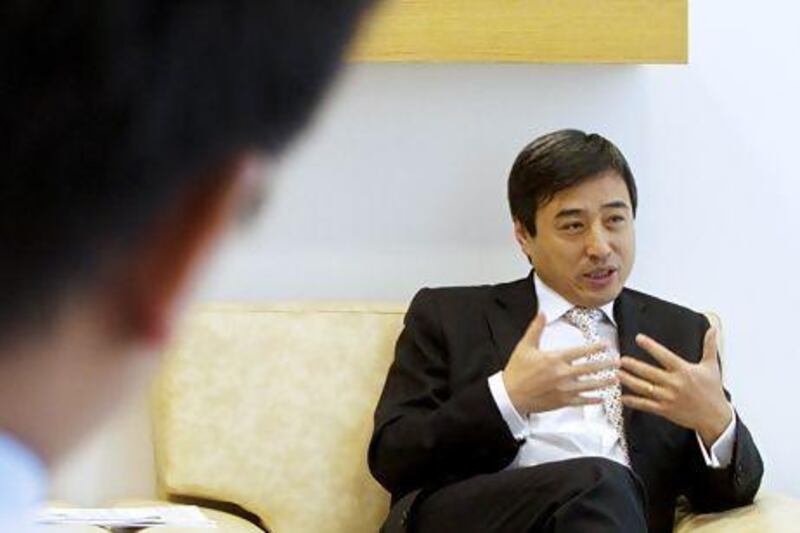Industrial and Commercial Bank of China (ICBC) signalled confidence in the outlook for the Middle East after a year that brought expansion across the region for the world's biggest lender.
The Dubai arm of the Beijing-based bank generated pre-tax profits of US$54 million (Dh198.3m) last year, an increase of 68.7 per cent compared with a year earlier.
The bank had cashed in upon a year of strong growth in trade between China and the Middle East, said Tian Zhiping, the bank's regional chief executive.
"We have taken part in important syndications and witnessed growing volumes of [Chinese yuan] transactions, all of which added to our business growth," he said. "We are also providing project financing to the increasing number of Chinese businesses operating in the Middle East."
The bank was confident about its growth prospects in the region, Mr Tian added.
"We will continue to focus on commercial banking, while we aim to develop investment banking and asset management services," he said. "We are also hopeful that our Kuwait and Riyadh branches will be joining our GCC network within this year."
The bank is seeking to tap into the Arabian Gulf's financing needs for large infrastructure projects including energy, transportation, technology and telecommunications.
ICBC received regulatory approval this year to open branches in Saudi Arabia and Kuwait, adding to its existing regional offices in Abu Dhabi, Dubai and Doha.
The bank's bullish outlook on the Middle East contrasts with a retreat by some European banks, which are withdrawing staff and selling regional franchises as they find scarce opportunities amid the continent's stagnating economies.
ICBC has also announced plans to strengthen ties with Qatar Holding to boost cooperation and investments between Qatar and China, while its investment management arm signed a deal this month with National Bank of Abu Dhabi to share distribution networks.
ICBC has sought to broaden its international footprint in anticipation of reforms to China's financial sector including a relaxation of the rates banks may charge on deposits, which are likely to increase competition in the sector and squeeze lending margins, analysts from Agricultural Bank of China wrote in a research note last month.
The note added that ICBC has aggressively attempted to source greater numbers of managed investments overseas as China's population grows older and seeks to finance its retirement.
The bank said it had conducted $2.25 billion worth of regional interbank transactions using the Chinese yuan during the past year and $1.64 billion of foreign exchange transactions, as it seeks to capitalise upon regional demand for the so-called "red-back".
Dubai is seeking to become a yuan clearing and settlement hub for the region, with banks including HSBC, Standard Chartered, Mashreq, and Emirates NBD all hoping to tempt new customers with yuan-denominated accounts.
ICBC's assets - which includes its loan book - grew by 29 per cent during the year to $3.96bn. Liabilities rose 28 per cent to US$3.81bn during the corresponding period.





